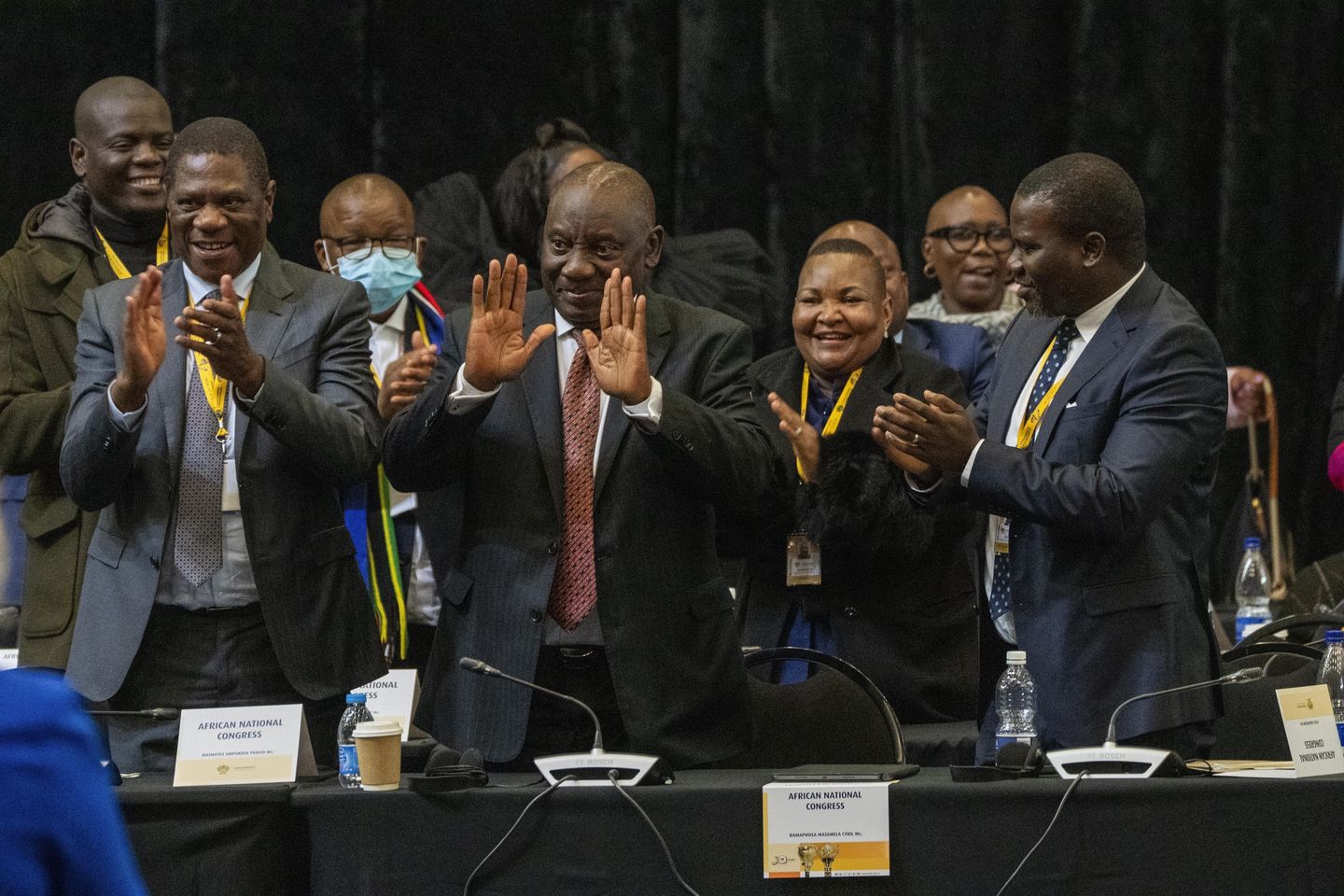South African President Cyril Ramaphosa secured a second term in office on Friday, as lawmakers voted to reelect him following a last-minute coalition agreement between his party and a former political rival. The dramatic turn of events came just hours before the scheduled vote, signaling a shift in the country’s political landscape.
Ramaphosa, a member of the African National Congress (ANC), has been in power since 2018 when he succeeded Jacob Zuma. During his first term, he faced numerous challenges, including a struggling economy, widespread corruption, and social unrest. Despite these obstacles, he managed to implement several reforms aimed at addressing these issues and restoring public trust in the government.
The decision to reelect Ramaphosa was not without controversy, as some lawmakers within the ANC had expressed reservations about his leadership. However, the last-minute coalition agreement with the Economic Freedom Fighters (EFF), a left-wing political party that has been critical of the ANC in the past, helped secure the necessary votes for his reelection.
The coalition agreement between the ANC and the EFF is seen as a significant development in South African politics, as it marks a rare show of unity between two parties that have often been at odds with each other. The agreement is expected to bring about greater cooperation between the two parties and pave the way for collaboration on key policy issues in the future.
Ramaphosa’s reelection comes at a critical time for South Africa, as the country continues to grapple with the economic fallout from the COVID-19 pandemic and ongoing social unrest. His leadership will be crucial in navigating these challenges and steering the country towards a path of recovery and stability.
In his acceptance speech, Ramaphosa pledged to prioritize economic growth, job creation, and social reform during his second term. He also promised to tackle corruption and promote transparency in government, acknowledging the need for accountability and good governance.
The reelection of Ramaphosa has been met with mixed reactions from the public, with some expressing optimism about his ability to lead the country out of its current crisis, while others remain skeptical of his leadership. The coalition agreement with the EFF has also raised concerns among some ANC members, who fear that it could compromise the party’s values and principles.
Despite these challenges, Ramaphosa remains determined to deliver on his promises and fulfill the expectations of the South African people. His reelection marks a new chapter in the country’s political history, one that will test his leadership skills and ability to unite a divided nation.
As Ramaphosa begins his second term in office, all eyes will be on him to see how he tackles the pressing issues facing South Africa and whether he can deliver on his ambitious agenda. The coalition agreement with the EFF has set the stage for a new era of cooperation in South African politics, but the road ahead is sure to be filled with challenges and obstacles.
In the coming months and years, Ramaphosa will need to demonstrate strong leadership, political acumen, and a commitment to serving the interests of all South Africans. His reelection has given him a fresh mandate to lead the country forward and address the urgent needs of its people, but the real test will be in how he translates his promises into meaningful action.
As South Africa looks towards a post-pandemic future, the reelection of Cyril Ramaphosa offers a glimmer of hope for a country in need of stability and direction. With the support of the ANC and the EFF, he has the opportunity to make a lasting impact on the country’s political landscape and shape its future for generations to come.









